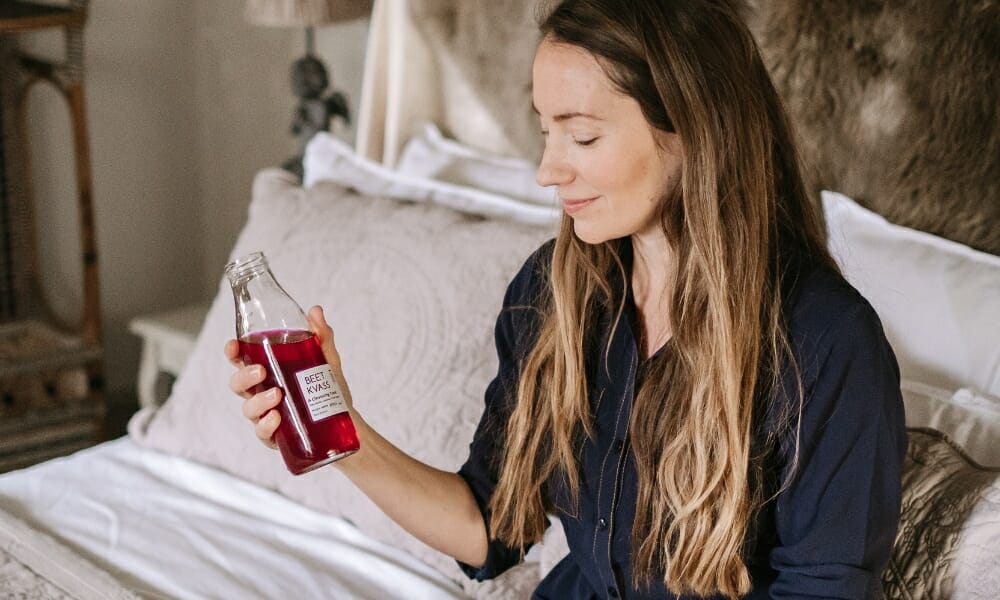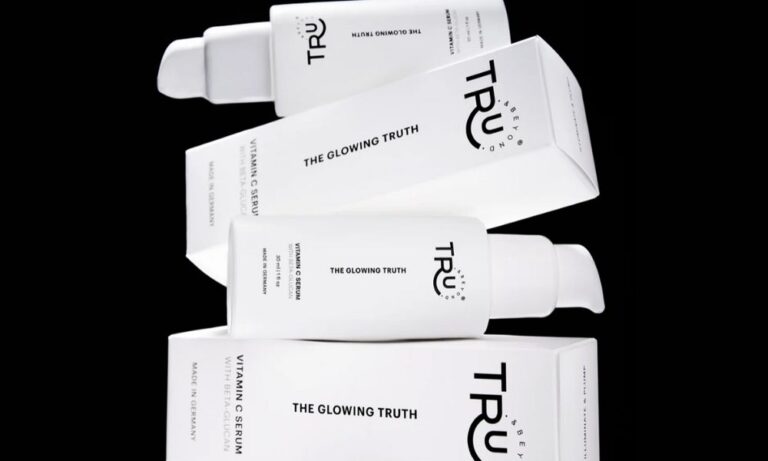There’s a multitude of factors that influence the texture, hydration, smoothness and plumpness of our skin. Nutrition and lifestyle factors have an enormous impact on the health and appearance of our skin. An increasing amount of research is showing how what we eat, our gut microbiome and our nutritional status all impact our skin from the inside out.

You wear what you eat
Our skin is the largest organ in our body. It creates a boundary between us and the physical world.
What we eat has a direct impact on the health and appearance of our skin. As science begins to unveil more about the antiaging effects of certain active compounds in foods, let’s take a look at four key foods that support beautiful skin.
Beauty and the Beet
When it comes to a beauty tonic, you can’t get much better than beet kvass. Beet kvass is a fermented beetroot drink, rich in vitamin C and antioxidants as well as being a rich source of nitrates. When we eat nitrate-rich foods, we naturally increase levels of nitric oxide, which helps to relax our blood vessels. This increases blood flow to the skin, which nourishes and supports skin regeneration. Beet kvass also contains beneficial bacteria, which is important for skin health as the microbiome plays a pivotal role in supporting a healthy immune system and nutrient absorption, and even makes the beauty B-vitamin Biotin! You can buy online or make your own at home.
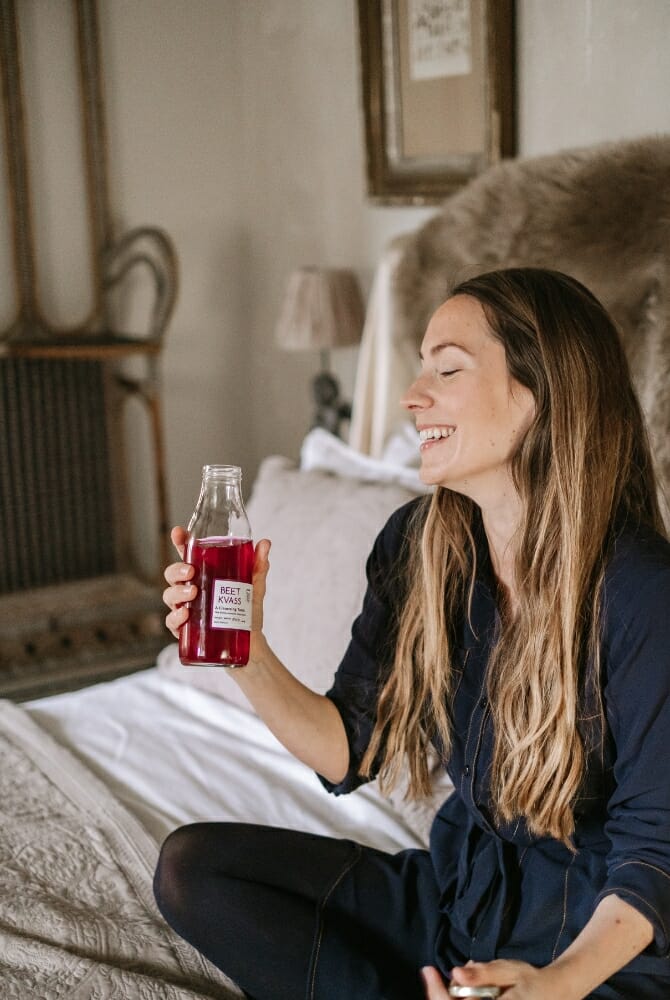
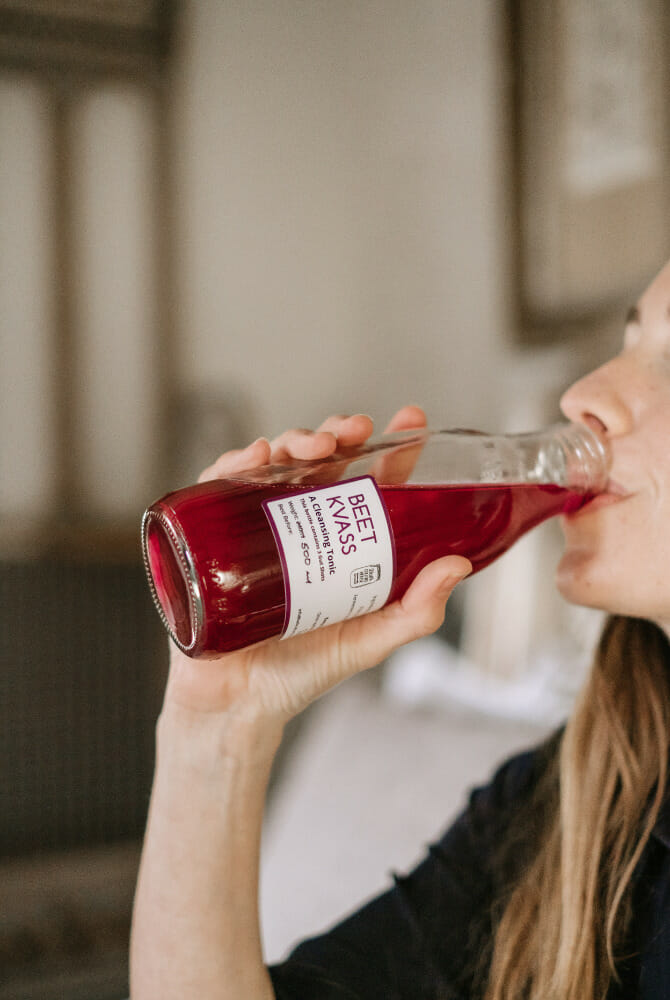
Boosting collagen levels
Collagen supplementation is a hot topic at the moment. Much of the large-scale research conducted has focused on the impact collagen can have on skin health and appearance (1). While other benefits may exist, such as the potential improvements in bone density in post-menopausal women (2) and possible improvements in muscle mass in age-related muscle loss (3), it is dermatological research that offers the most robust and current findings.
Collagen is the cornerstone protein in the skin that determines a great deal of the skin’s visual characteristics. Collagen, like many other proteins in the body, is in a constant state of turnover, meaning our body is continuously making more to replace collagen that has been degraded.
Skin experiences an age-dependent collagen loss, which sees a reduction in elasticity, plumpness, smoothness and an increase in the number of wrinkles. Age-dependent collagen loss is accelerated by a number of factors, including nutrient deficiency, alcohol intake, chronic stress, sunlight, smoking and environmental pollution.
While many individuals choose topically applied products to reduce the physical sign of skin ageing, there remains uncertainty about the ability of these products to penetrate the deeper dermal layer of the skin where fibroblasts, the cells responsible for making collagen, are found.
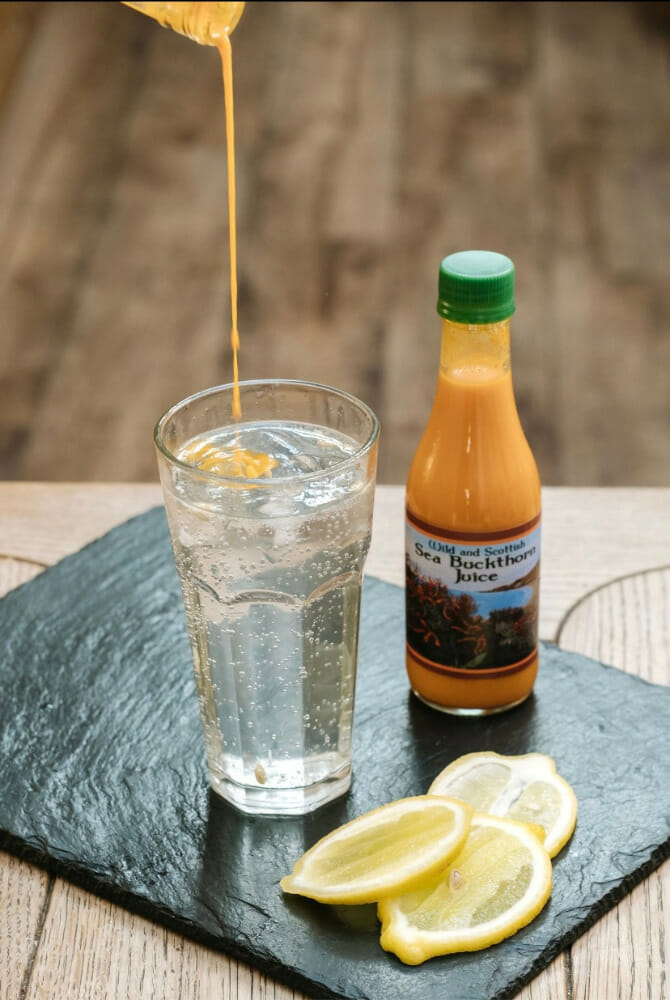
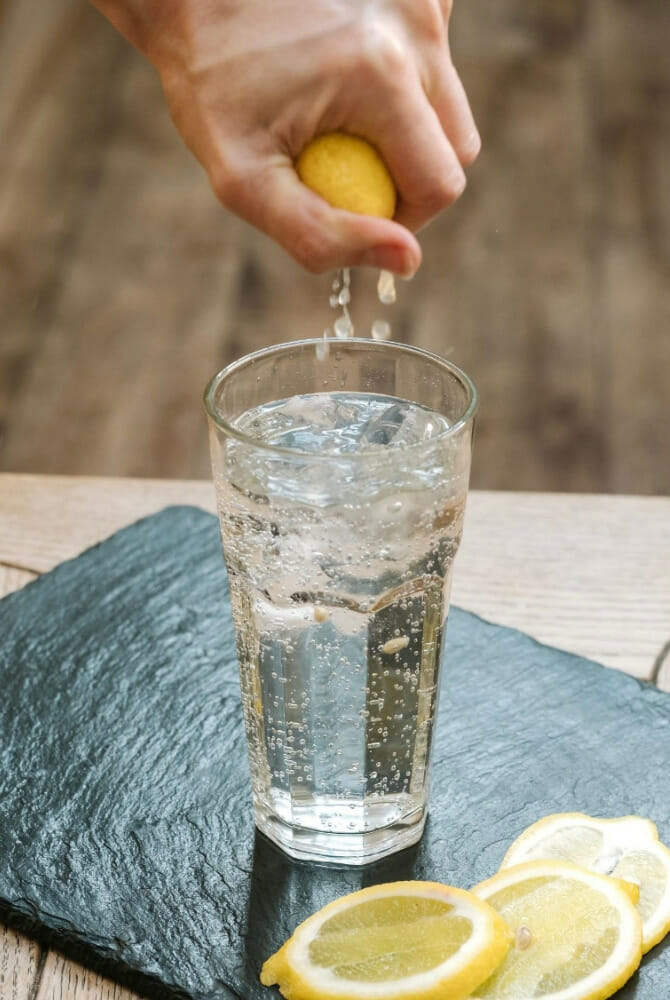
When oral collagen peptides are ingested, they are broken down further into bioactive di- and tri-peptides in the gastrointestinal tract and absorbed into the bloodstream. The peptides accumulate in the skin, increasing dermal collagen density, skin elasticity and skin hydration. A recent systematic review of oral supplementation of collagen, which included 11 studies, suggested that collagen supplementation was safe, had no adverse effects and positively affected skin ageing.
Collagen and elastin form a scaffold-like structure within the skin to create healthy, smooth, elastic skin. Research shows how oral supplementation of collagen peptides boosts the body’s own production of collagen, improving the appearance and texture of the skin. Marine collagen is an ideal form of bioavailable collagen peptides which can support not only skin health but also hair and nail health.
Sea Buckthorn
Sea buckthorn is commonly found as an ingredient in many topical beauty creams, however, the benefits of consuming this beauty berry are more than just skin deep! Sea buckthorn is a brightly coloured orange berry that has long been used in traditional medicine for its anti-ageing, skin and heart health benefits. As a rich source of Vitamin C, sea buckthorn supports collagen production, progesterone building as well as a healthy immune system. Sea buckthorn also has one of the highest levels of omega-7, which helps to alleviate dry eyes and intimate dryness in women. Sea buckthorn can be consumed as a juice or as a powder added to smoothies or yoghurt.

Skin Essentials
Omega-3 essential fatty acids help to moisturise and nourish the skin, which could minimise the signs of ageing. These amazing beauty fats enhance the skin’s natural barrier, sealing in moisture and keeping out damaging toxins. Omega-3 fats are also highly anti-inflammatory, which helps to protect the skin against the damaging effects of chronic inflammation, a common problem with our modern-day diets and lifestyle.
There is some research that suggests superior omega-3 fatty acids EPA and DHA, found in oily fish, may also protect against the damaging effects of UV light. Salmon, mackerel and sardines are a super source of these superior omega-3 fatty acids. However, if you don’t enjoy eating fish, a high-quality, wild Alaskan fish oil supplement can significantly boost omega-3 levels. Vegan options include plant-based omegas from Ahiflower and Algae such as CatchFree by Wiley’s Finest. A daily dose of omega-3 fatty acids is an effective way of nourishing your skin from the inside out.
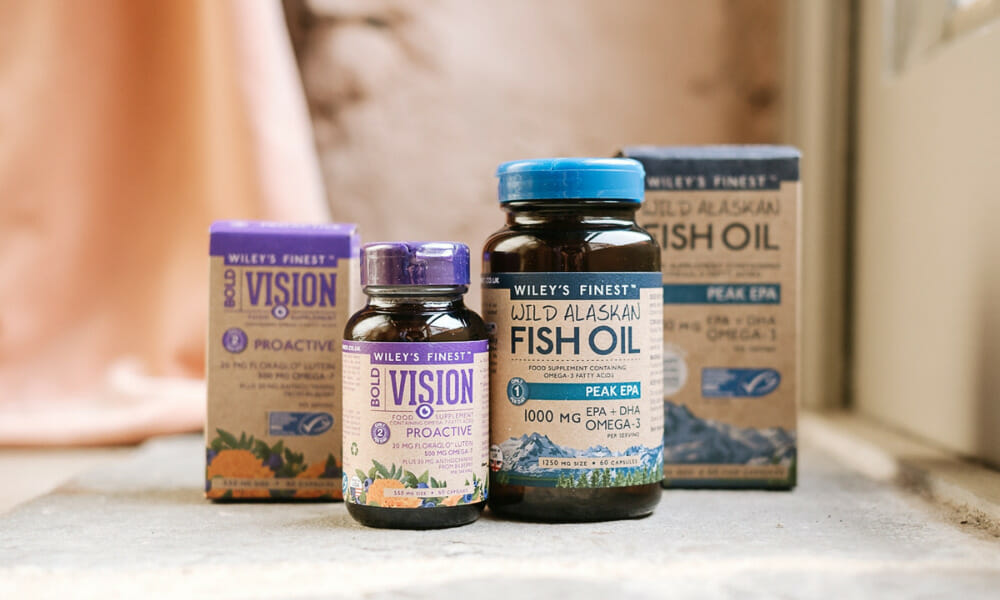
Written by Pauline Cox MSc.
